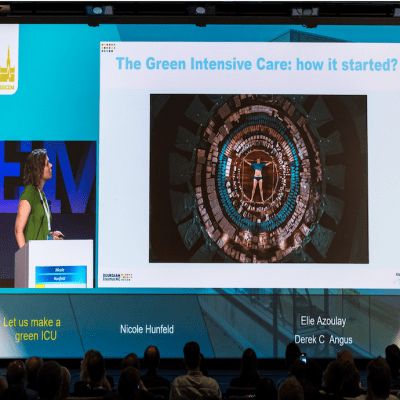A new streamlined approach for early detection and treatment of acute kidney injury (AKI) has reduced mortality rates by 23 percent and hospital length of stay by 13 percent, according to a pilot study presented at ASN Kidney Week 2015 in San Diego. AKI is a common condition that affects 21 percent of hospitalised adults and 33 percent of hospitalised children worldwide.
Researchers at Aintree University Hospital (Liverpool, UK) noted that AKI has a mortality rate of 30 percent, which is higher than that for myocardial infarction (8 percent) and stroke (9 percent). They estimated that 15 percent of all inpatients at Aintree University Hospital suffer an AKI, “making it a condition of considerable importance in everyday practice.”
To reduce the toll of AKI at the hospital, and raise awareness of the importance of its prevention, co-authors Thangavelu Chandrasekar, MRCP, and Hsu Pheen Chong, MbChB, developed the STOP-AKI protocol. The programme uses automated electronic alerts to identify patients at risk for developing AKI. STOP-AKI was initially launched in the nephrology ward and then scaled up to become part of routine management for all patients admitted to the hospital.
The researchers used a multidisciplinary streamlined approach, incorporating AKI risk assessment and screening for prevention, early detection using automated e-alerts, and effective intervention (using an evidence-based AKI treatment bundle) to improve patient outcomes by reducing the AKI-associated mortality by 23 percent. At the same time, hospital length of stay fell by 13 percent, or a 2.7-day reduction in length of stay.
See Also: Global Study: 65% of AKI Cases Are Community Acquired
“Improving staff and patient awareness through education, effective monitoring, and handover to primary care on discharge has ensured continuity of care that will hopefully reduce readmissions with AKI,” explained Dr. Chandrasekar. He noted that this required multiple changes to the system at different levels to achieve the reductions in mortality and hospital length of stay.
The research team is currently developing metrics to assess AKI progression and its predictors. They have also rolled out STOP-AKI alerts and management guidelines to the community, enabling much earlier intervention, Dr. Chandrasekar added.
The STOP-AKI protocol is one of several Avoidable Mortality Reduction projects underway at Aintree University Hospital, the others focusing on reducing sepsis and pneumonia.
Source: American Society of Nephrology
Image credit: London Acute Kidney Injury Network
Researchers at Aintree University Hospital (Liverpool, UK) noted that AKI has a mortality rate of 30 percent, which is higher than that for myocardial infarction (8 percent) and stroke (9 percent). They estimated that 15 percent of all inpatients at Aintree University Hospital suffer an AKI, “making it a condition of considerable importance in everyday practice.”
To reduce the toll of AKI at the hospital, and raise awareness of the importance of its prevention, co-authors Thangavelu Chandrasekar, MRCP, and Hsu Pheen Chong, MbChB, developed the STOP-AKI protocol. The programme uses automated electronic alerts to identify patients at risk for developing AKI. STOP-AKI was initially launched in the nephrology ward and then scaled up to become part of routine management for all patients admitted to the hospital.
The researchers used a multidisciplinary streamlined approach, incorporating AKI risk assessment and screening for prevention, early detection using automated e-alerts, and effective intervention (using an evidence-based AKI treatment bundle) to improve patient outcomes by reducing the AKI-associated mortality by 23 percent. At the same time, hospital length of stay fell by 13 percent, or a 2.7-day reduction in length of stay.
See Also: Global Study: 65% of AKI Cases Are Community Acquired
“Improving staff and patient awareness through education, effective monitoring, and handover to primary care on discharge has ensured continuity of care that will hopefully reduce readmissions with AKI,” explained Dr. Chandrasekar. He noted that this required multiple changes to the system at different levels to achieve the reductions in mortality and hospital length of stay.
The research team is currently developing metrics to assess AKI progression and its predictors. They have also rolled out STOP-AKI alerts and management guidelines to the community, enabling much earlier intervention, Dr. Chandrasekar added.
The STOP-AKI protocol is one of several Avoidable Mortality Reduction projects underway at Aintree University Hospital, the others focusing on reducing sepsis and pneumonia.
Source: American Society of Nephrology
Image credit: London Acute Kidney Injury Network
Latest Articles
healthmanagement, acute kidney injury, AKI, mortality rates, length of stay, protocol
A new streamlined approach for early detection and treatment of acute kidney injury (AKI) has reduced mortality rates by 23 percent and hospital length of stay by 13 percent, according to a pilot study presented at ASN Kidney Week 2015 in San Diego.



























